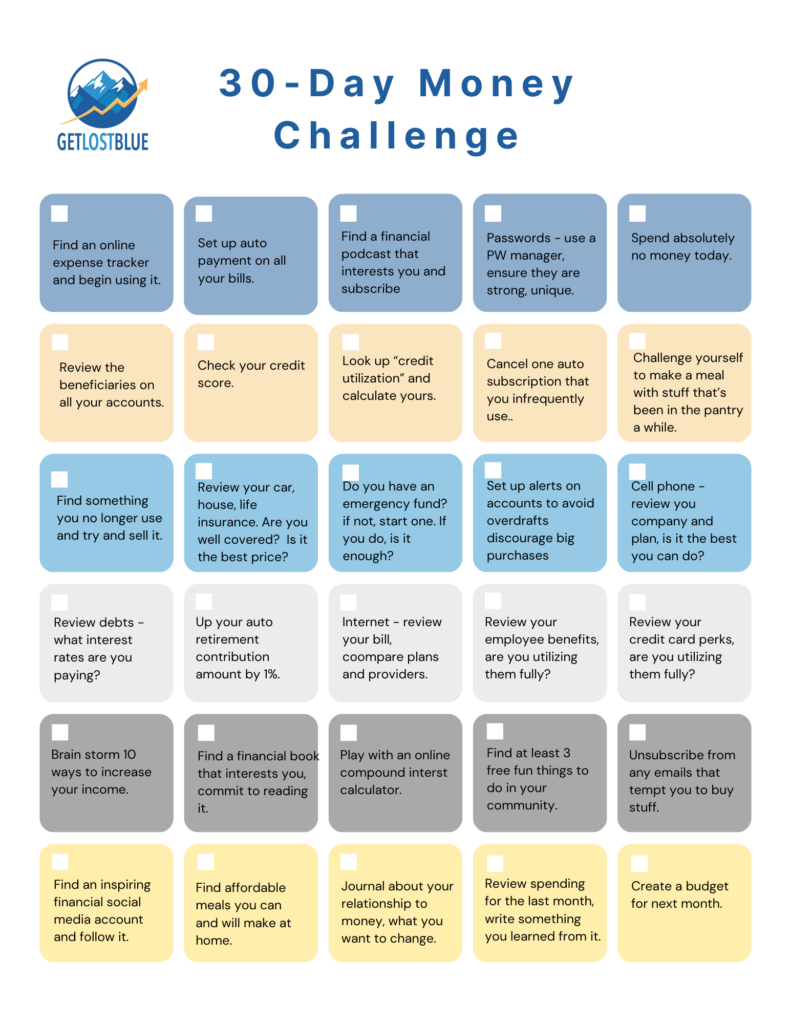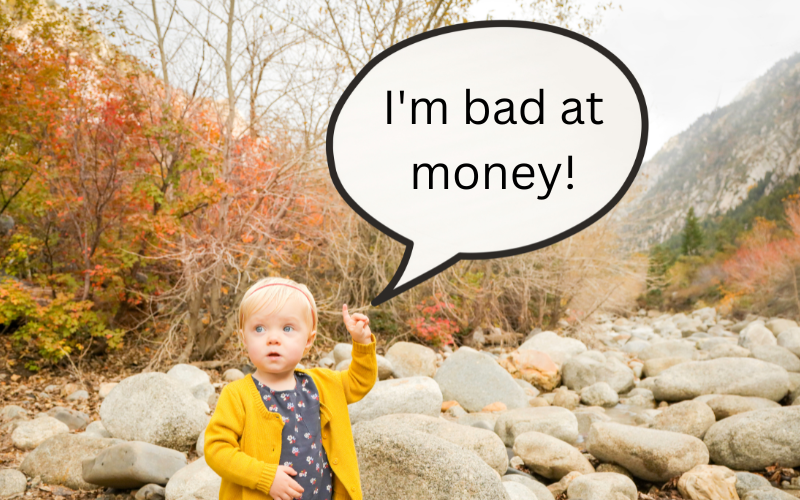I hear it all the time. People who struggle with personal finance shrug it off, saying “guess I’m just bad with money!” Like my friend who’s always broke at the end of the month, because he’s “not a numbers guy” or my cousin who collects late fees like they’re pokemon cards.
Being bad with money is not a quirky personality trait, it’s a fixable skill gap!
It’s like a toddler saying, “I’m not going to practice walking, cuz I fall sometimes!” Or, “potty training isn’t coming naturally to me, guess I’ll just give up.”
Fast forward to a 40 year old, crawling around in a diaper – not cute, right?
Maybe you’re one of the lucky ones who received quality financial education in school. Or, your parents taught you well. If not, you have to educate yourself.
If you did learn and you’re not implementing what you know, time to start addressing why – but that’s a whole different article!
But don’t worry, its okay to be a late-bloomer. I was! It wasn’t until my mid-30’s (aka ancient) that I got around to learning about money. But once I did, life got much better! So whether you’re 20, 40 or 60 – it’s not too late to start.
So, let’s talk about how to stop copping out, and start mastering your finances. Put on your big kid pants, lets go!
First, why you should care?!
Ignoring finances affects relationships, health and your ability to have choices in life. Where you live, the kind of work you do (or don’t do), the opportunities you can say yes to, all of it is shaped by your financial situation.
Financial problems are one of the biggest sources of conflict in relationships, straining marriages, partnerships, and family dynamics. Chronic money worries are linked to anxiety, depression, and even physical health issues like high blood pressure and sleep disorders. Further, struggling with money can mean being stuck in a toxic job, and even unsafe living conditions.
On the flip side, having financial stability gives you freedom. Freedom to take a risk, start a business, move to a new city, travel, or simply breathe easier knowing an emergency won’t wreck your life.
Still think it’s a quirky personality trait you want to embrace? Or are you ready to start doing something about it?
How to educate yourself
While the fundamentals of personal finance are fairly straightforward – spend less than you earn, invest for the future – there are endless ways to implement them. There is no one recipe to follow.
Some people swear by budgeting, while some say it’s not necessary. Some invest aggressively in index funds, while others build wealth through real estate or entrepreneurship. Advice can vary wildly depending on personal circumstances, goals, and risk tolerance.
Personal finance is also one of the most talked about, information overloaded topics out there. And not only is there lots of information, there’s lots of bad information.
So, the objective is not to memorize information. The goal is to develop the critical thinking skills to determine what is good, bad, even dangerous – and apply it in your own way to your life.

Things to guide you:
- Consider your sources and their motivations. Financial influencers on TikTok might be entertaining, but is their info reckless? Someone may have a bunch of credentials and use financial buzz words, but are they selling you something that is good for you, or for them? Be skeptical and consider their incentives for pushing this information on you. Are they after clicks, are they selling a course or earning a commission?
- Avoid get-rich-quick schemes. If it sounds too good to be true, it is. Don’t get sucked into taking excessive risk, especially if you’re doing it just because you feel like you’re behind and need to catch up. Start with and stick to some tried and true financial strategies. And then, with only a small percentage of your money, maybe start branching out with more exotic financial tactics. Especially if they involve taking on debt, like a home equity loan or trading on margin!
- You may need to un-learn. You probably have some unconscious beliefs and rules around money that are getting in your way. Maybe you picked-up that talking about money is rude, that wealth is only for certain kinds of people, or that struggling financially is “just the way it is.” These hidden scripts shape your decisions more than you realize. And until you challenge them, they’ll keep holding you back. Journaling is a great way to start to uncover money self-talk that may be living rent-free in your head. You can download my money journal for free, with prompts to get you started.
- Start small and where it feels good: Like learning to eat your vegetables, you don’t want to go straight to brussel sprouts. Its okay to start with cheese covered broccoli. Find a topic that sounds fun to dabble in, do it in small doses. Set small, easily measurable goals, like: I will listen to 5 minutes of a money 101 podcast this week in the car while driving to work. You might accidentally listen to 10 minutes, if they make it fun! Get a good taste in your mouth and let your passion for it grow organically.
- Realize it is a lifelong pursuit. This isn’t a one-and-done project. Both the financial landscape and your personal circumstances will keep evolving. Stay engaged, build a routine, and adapt as needed to keep your money working for you.
Resources
Yes, there’s plenty of bad advice and sketchy influencers out there, but there are also incredible experts sharing high-quality, low-cost (or free!) financial wisdom. Learning to build wealth doesn’t need to cost a fortune! Swap a little of this content for a Netflix episode, drive-time entertainment or bedtime reading – it might just be the best investment you ever make!
If you are overwhelmed with where to start, here are a few of my favorite and trusted sources.
Books:
- The Psychology of Money – Morgan Housel
- I Will Teach You to Be Rich – Ramit Sethi
- The Simple Path to Wealth – JL Collins
Podcasts:
YouTube:
Stop the Cop-Out
Learning is great, but nothing changes until you take action. So, to stop the cop-out, you have to actually start doing!
Taking action is scary, I know. The first $100 that I put into a Roth IRA was terrifying. I had to decide where to open the account, what investment, link it to my bank…and eventually hit the buy button.
A lot went into that first $100!
But every step built momentum and boosted my confidence. And better yet, the next $4,900 I put in that year was basically easy! (Because I set up an auto-investment.)
So, find something that you can do today! You may not be ready or able to set up an auto-savings today. But can you download a spending tracker, look up the interest rate on your credit card or move $100 to savings?
Before you know it, you’ll stop seeing money as something overwhelming and start seeing it as something you’re fully capable of handling.
Remember, if you keep telling yourself you’re bad with money, you’ll keep acting like it. Shift your script to, “I’m learning to manage my money better.”
Educate yourself, take small steps, and aim for competence, not perfection. Like learning to walk before you run. Future You (the one who isn’t drowning in financial stress) will be very grateful.
Live a Life You Love
Tired of feeling stuck? Let’s create your escape plan. Schedule your free session today.
Or, get my easy-to-follow Money Challenge – transform your finances in Just 30 Days!

- Simple
- Actionable
- Empowering


Leave a Reply